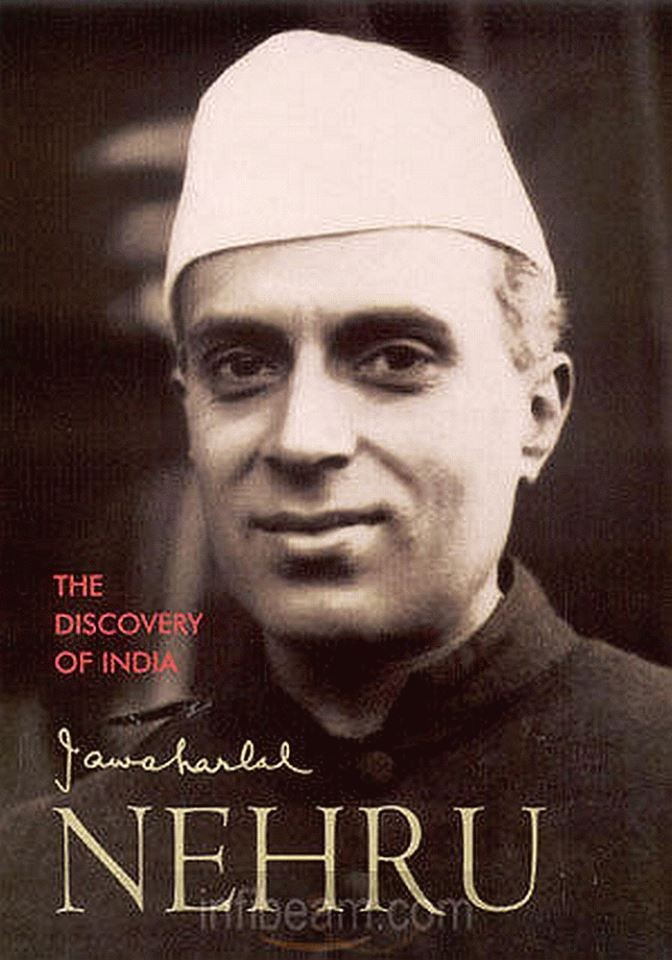Chapter -1
Chapter 1 of "The Discovery of India" by Jawaharlal Nehru:
Chapter 1: The Quest
In the opening chapter of "The Discovery of India," Jawaharlal Nehru sets the stage for his exploration of India's history and culture. He begins by reflecting on his personal experiences and upbringing, highlighting how his own life and education had led him to be curious about India's past and identity.
Nehru mentions his childhood memories, including his early education in England and his exposure to Western thought and ideas. He discusses how these experiences created a sense of duality in his identity, as he was deeply rooted in Indian culture but also influenced by the Western world.
The chapter introduces Nehru's curiosity about India's ancient civilization and its contributions to philosophy, science, and art. He expresses a desire to understand the essence of India, not just as a geographical entity but as a living and evolving civilization.
Nehru's "quest" in this chapter represents his intellectual and emotional journey towards discovering India's history and heritage. It serves as an introduction to the broader themes he will explore in the book, including India's ancient past, the impact of colonialism, and the aspirations of a newly independent nation.
In essence, Chapter 1 establishes Nehru's personal connection to India's history and culture while foreshadowing his
exploration of the country's multifaceted identity in the subsequent chapters of the book.
Chapter -2
Chapter 2 of "The Discovery of India" by Jawaharlal Nehru:
Chapter 2: The Indus Civilization
In Chapter 2 of "The Discovery of India," Jawaharlal Nehru delves into the ancient history of the Indian subcontinent, focusing on the Indus Valley Civilization.
Nehru begins by describing the geographical and environmental features of the Indian subcontinent that have shaped its history. He highlights the significance of the mighty rivers—the Indus, Ganges, and Brahmaputra—and the varied landscapes that range from mountains to plains.
The core of this chapter revolves around the Indus Valley Civilization, one of the world's oldest urban civilizations. Nehru provides an overview of its historical context, urban planning, architecture, and trade connections. He emphasizes the advanced nature of this civilization, with its well-planned cities, drainage systems, and a script that is yet to be fully deciphered.
Furthermore, Nehru discusses the possible causes of the decline of the Indus Valley Civilization, including ecological factors and invasions. He reflects on the historical continuity of Indian civilization, highlighting that while the Indus Valley Civilization may have declined, its legacy lived on in the subsequent cultures and societies of India.
This chapter underscores the ancient roots of Indian civilization and sets the stage for Nehru's exploration of the country's historical and cultural evolution. It emphasizes the idea that India's history is not merely a collection of disconnected events but a continuous and evolving tapestry that has shaped its unique identity.
Chapter -3
Chapter 3 of "The Discovery of India" by Jawaharlal Nehru:
Chapter 3: The Vedic Age
In Chapter 3 of "The Discovery of India," Nehru delves into the Vedic age, a crucial period in Indian history that marked the composition of the Vedas and the evolution of early Hinduism.
Nehru begins by setting the historical context, describing the transition from the decline of the Indus Valley Civilization to the emergence of the Vedic culture. He explains how the arrival of the Indo-Aryans, likely from Central Asia, played a pivotal role in shaping the Vedic period.
The chapter explores the significance of the Vedas, the sacred texts of ancient India, and how they provided the framework for religious and philosophical thought during this era. Nehru discusses the different Vedas—the Rigveda, Yajurveda, Samaveda, and Atharvaveda—and their roles in rituals, hymns, and prayers.
Nehru also touches upon the social structure and values of the Vedic society, including the varna system and the importance of the priestly class (Brahmins). He highlights the importance of rituals and sacrifices in Vedic religion and the reverence for nature and natural forces.
Moreover, Nehru reflects on the poetry and philosophy found in the Vedas, emphasizing their timeless appeal and the deep reverence for knowledge and wisdom.
This chapter serves as an exploration of the foundational elements of early Indian civilization, particularly the religious and philosophical developments of the Vedic age. Nehru's detailed analysis provides readers with a deeper understanding of India's ancient heritage and its contribution to the world of spirituality and philosophy.






No comments:
Post a Comment